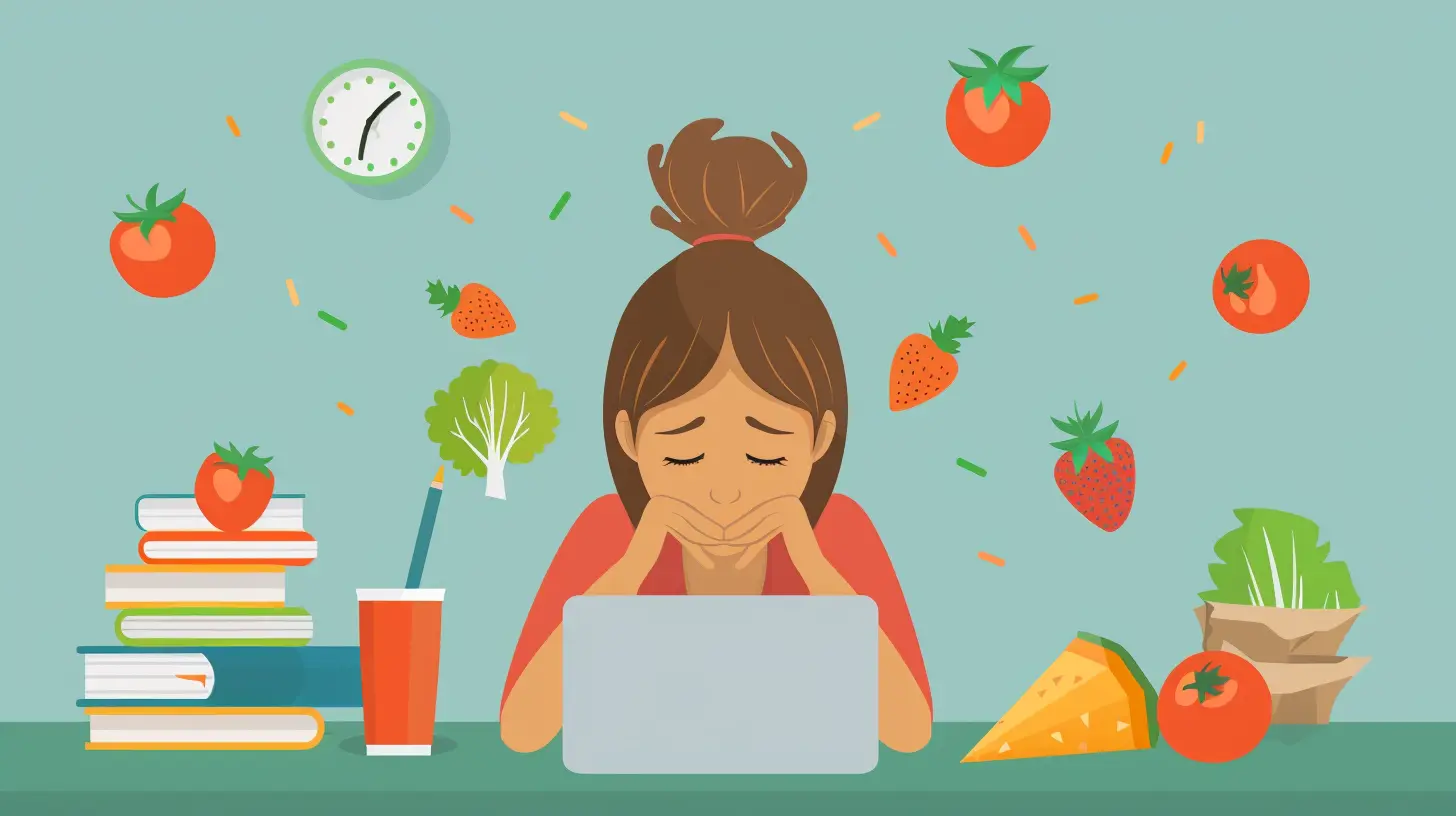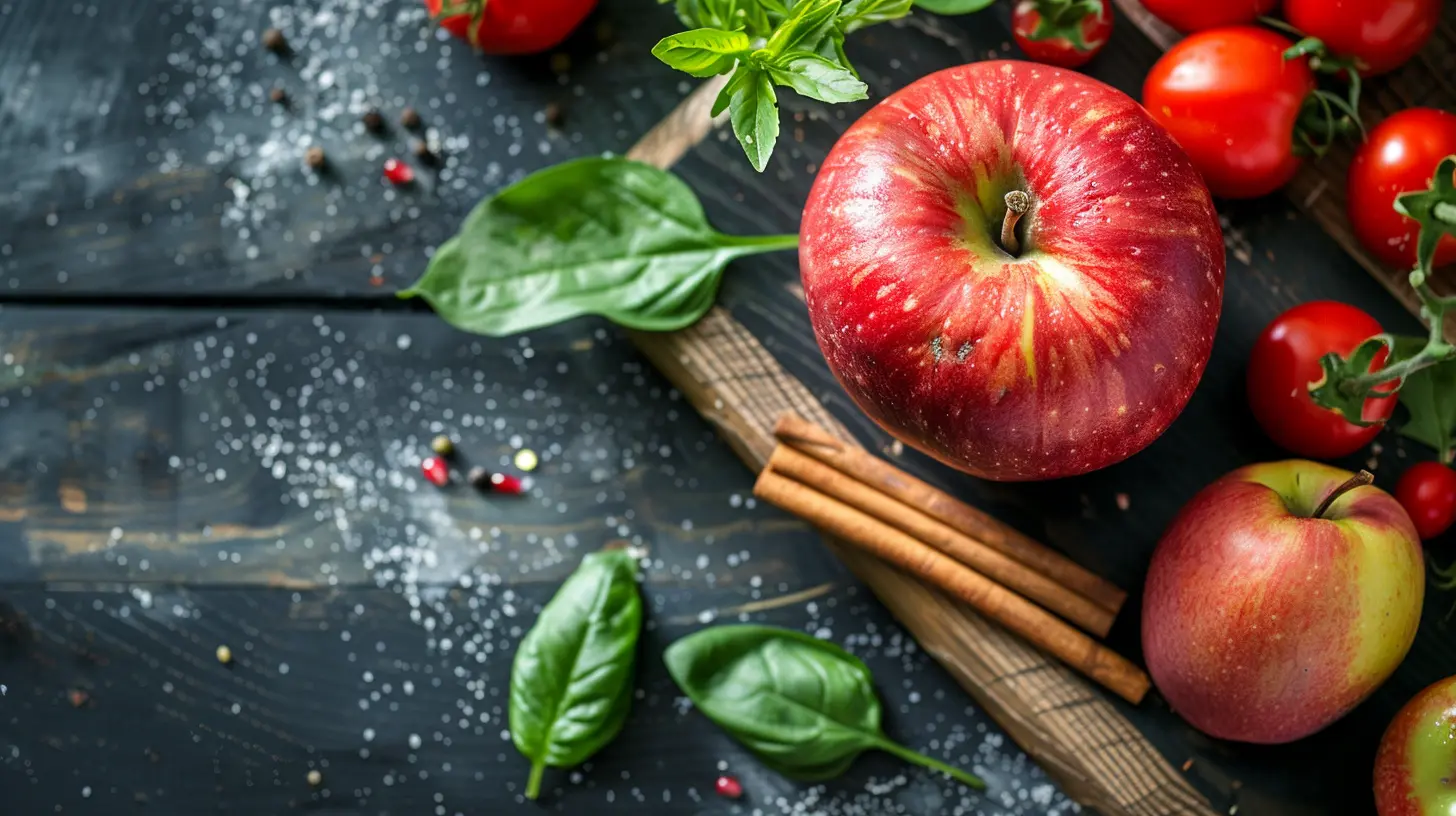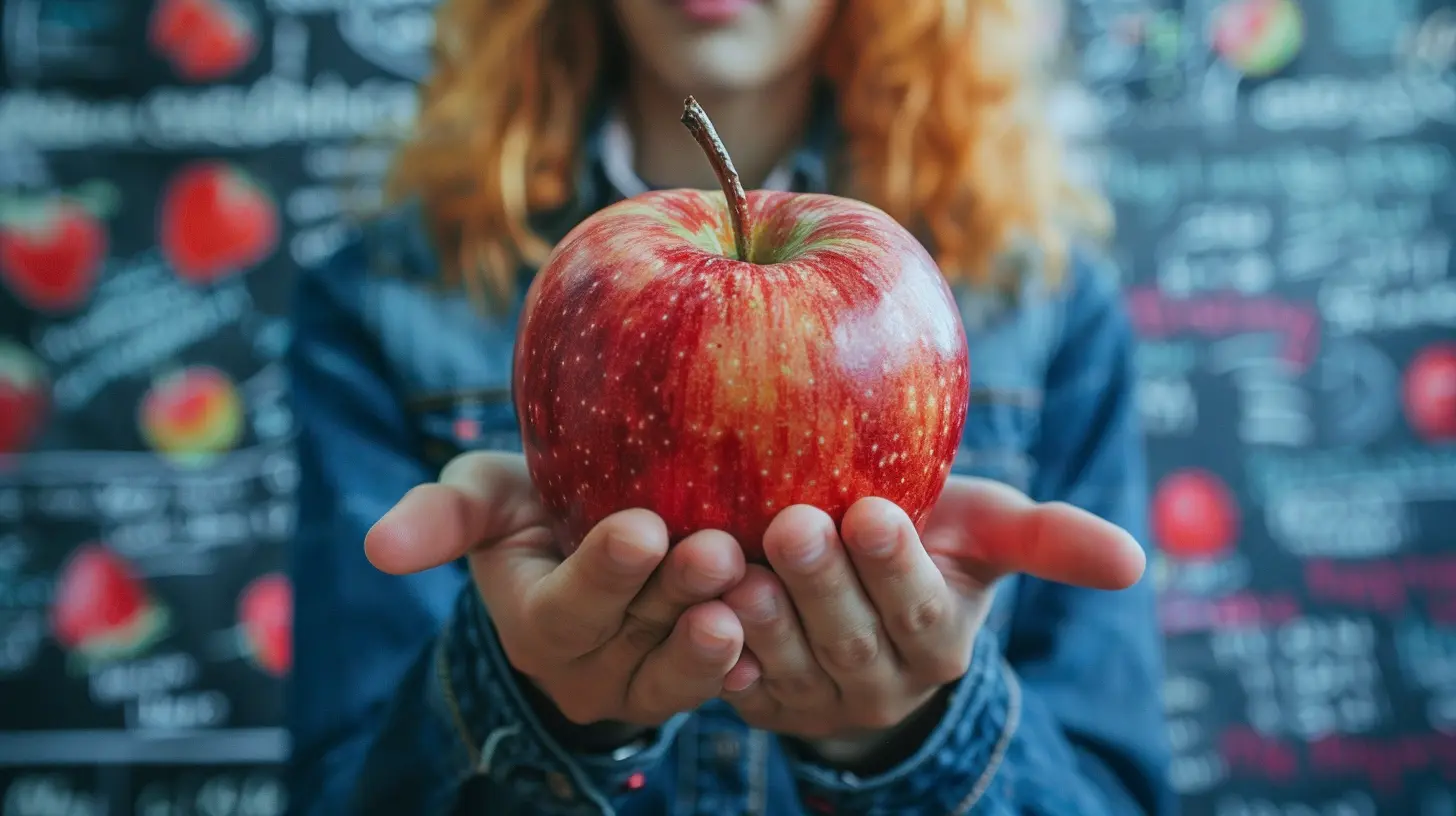Nutrition Tips to Boost Energy and Prevent Teacher Burnout
23 July 2025
Teaching is one of the most rewarding, yet demanding professions out there. From lesson planning to managing classrooms and staying emotionally available for every student—teachers wear more hats than most people realize. But let’s face it, putting in all that effort every single day can take a toll on your body and mind.
If you've been hitting that midday slump way too often or feel like you're running on empty before the week even ends, one big piece of the puzzle might be your nutrition. Yep—what you're fueling your body with can make or break your energy levels, focus, and overall resilience. So, let’s talk about the real deal: how proper nutrition can help you stay energized, focused, and burn-out-free.

Why Nutrition Matters More Than You Think
Ever tried teaching a classroom full of high-energy kids with nothing more than coffee and a granola bar in your system? Not fun—and definitely not sustainable. Nutrition isn’t just about looking good or hitting your macros. It's the foundation of how your body functions.When you feed your body crap, it gives you crap energy in return. But when you fuel it right, you’re not only powering through your day like a champ, you're also investing in your long-term mental and emotional well-being.

Common Nutritional Pitfalls Teachers Face
Before we dive into the good stuff, let’s do a quick pit stop to acknowledge the usual suspects that mess with teacher energy.- Skipping meals: You’re busy. We get it. But missing breakfast or lunch sets you up for energy crashes—and grumpy moods.
- Overdosing on caffeine: That third coffee seems like a lifeline, but it can actually make you jittery and leave you more exhausted later.
- Too many refined carbs: Pastries, white bread, and vending machine snacks give you a quick high—followed by a brutal crash.
- Dehydration: Believe it or not, being just a little dehydrated can tank your energy and concentration.
Any of those ring a bell? Don’t worry, we’re not going to tell you to give up everything you love. Instead, let’s talk about simple, realistic changes that make a big difference.
1. Start the Day With a Power Breakfast
They weren’t lying when they said breakfast is the most important meal of the day. Teachers need stable energy, and nothing sets the tone better than a solid morning meal.What to Eat:
- Protein: Eggs, Greek yogurt, cottage cheese, or nut butter all give you lasting energy.- Whole grains: Go for oatmeal, whole wheat toast, or quinoa.
- Fruits: Bananas, berries, or apples provide natural sugars, fiber, and antioxidants.
Pro Tip: Overnight oats are your best friend. Quick to prep, delicious, and easy to grab and go.
2. Pack Smart Snacks
Let’s be real. Lunch can be elusive when your schedule is back-to-back. That’s where snacks come in to save the day.Snack Smart with:
- Mixed nuts or trail mix (watch the salt)- Greek yogurt with berries
- Apple with almond butter
- Carrot sticks and hummus
- Protein bars (look for low sugar)
Avoid those vending machine moments! Instead, keep a stash of healthy snacks in your desk drawer or teacher bag. Think of them like your energy insurance policy.
3. Hydrate Like a Pro
You already know water is important. But during a chaotic school day, it’s easy to forget to sip regularly.How to Stay Hydrated:
- Keep a reusable water bottle at your desk or on-the-go.- Infuse water with lemon, cucumber, or berries for flavor.
- Set hydration reminders on your phone or smartwatch.
Bonus: Staying hydrated not only boosts energy, it helps your brain stay sharp and your mood stable. Hydration = happier, more focused you.
4. Don’t Fear Fat—Choose the Good Kind
Fats have gotten a bad rep in the past, but the right kinds are essential for brain function and emotional well-being.Go for:
- Avocados- Olive oil
- Nuts and seeds
- Fatty fish like salmon
These fats help regulate your hormones and keep you feeling full longer. Translation? No more racing to the vending machine at 3 p.m.
5. Balance Your Meals Like a Pro
You don’t need to be a nutritionist to build a balanced plate. It’s as easy as 1-2-3: protein, complex carbs, and healthy fats.Try This Formula:
- Grilled chicken (protein)- Brown rice or sweet potatoes (complex carbs)
- Steamed broccoli with olive oil (healthy fats and fiber)
Planning your meals around this combo helps keep your blood sugar stable, which means consistent energy and fewer mood swings.
6. Cut Back on Sugar (But Not Joy)
We’re not saying never eat cookies. But constantly leaning on sugary snacks for quick energy will burn you out—fast.Hidden Sugar Traps:
- Flavored yogurts- Salad dressings
- Granola bars
- “Healthy” juices or smoothies
Aim to satisfy your sweet tooth with whole fruits and occasionally treat yourself with intention, not desperation.
7. Rethink That Third Cup of Coffee
Caffeine can feel like a lifeline, especially during those crazy exhausting weeks. But overdoing it leads to jitters, crashes, and worse sleep.Instead of Coffee, Try:
- Green tea (milder caffeine + antioxidants)- Herbal teas like peppermint or rooibos
- Lemon water for a zesty kick
If you're going to have caffeine, time it wisely—morning or early afternoon—so it doesn't mess with your sleep.
8. Meal Prep Like a Boss
When you plan ahead, you avoid the “I’m starving and there’s nothing good to eat” trap. Meal prep doesn’t need to be Instagram-perfect. Keep it simple.Tips for Easy Meal Prep:
- Cook in batches—grill some chicken, roast veggies, make a big pot of rice.- Prep grab-and-go containers for lunch and snacks.
- Freeze individual meals for busy weeks.
Meal prepping is the best way to dodge the fast food drive-thru after a long day.
9. Listen to Your Body, Not the Clock
Sometimes you're genuinely hungry at 10 a.m., and sometimes you’re not hungry at all by noon. That’s okay. Ditch rigid meal times and get in tune with your hunger cues.Signs You Need Fuel:
- Low energy- Brain fog
- Irritability
- Headaches
Respect your body’s signals. Think of it like a car engine—it needs fuel when it’s running low, not just on a schedule.
10. Don't Forget Mindful Eating
Multitasking while eating is a teacher's default mode. Emails, grading, lesson planning—done while chewing. But mindful eating can change everything.How to Eat Mindfully:
- Step away from the desk.- Focus on the taste and texture of your food.
- Chew slowly.
- Avoid screens while eating.
Giving yourself 15 undisturbed minutes to enjoy your lunch can make a huge difference in how you feel for the rest of the day.
Bonus Tip: Include a Little Joy in Every Meal
Let’s not turn nutrition into another rigid task on your ever-growing to-do list. Food should bring you energy AND joy. It’s okay—even healthy—to love the food you eat.Make room for your favorites, enjoy them without guilt, and focus on building a pattern of nourishment rather than perfection. Think balance, not punishment.
Building Sustainable Eating Habits
Implementing all of these tips at once? That’s overwhelming. Start small. Pick one or two changes to focus on this week. Maybe pack a protein-rich snack or drink more water during your break.Sustainable habits come from consistency, not intensity. You're not training for a nutrition Olympics. You're setting yourself up to be your best self—for you and your students.
Wrap-Up: Fuel Your Body, Feed Your Passion
Teaching demands your full mental, emotional, and physical energy. So why not give your body the kind of fuel that supports those demands?You wouldn’t let your smartphone run out of battery halfway through the day—so stop letting your body and mind do the same. Elevating your nutrition is one of the most powerful ways to boost your daily energy and fight off burnout before it starts.
So the next time you're tempted to skip lunch or grab that fourth coffee, pause and ask yourself—what would truly fuel me right now?
You’ve got this.
all images in this post were generated using AI tools
Category:
Teacher Burnout PreventionAuthor:

Bethany Hudson
Discussion
rate this article
1 comments
Xavier Heath
Thank you for sharing these vital tips! It's so important for teachers to prioritize their nutrition; taking care of ourselves helps us support our students better.
August 7, 2025 at 2:44 AM

Bethany Hudson
Thank you for your thoughtful comment! Prioritizing nutrition is indeed essential for both teachers and students' well-being.


